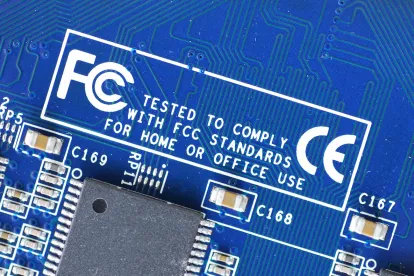NEPA Modernization
On July 15, the White House announced a final rule intended to modernize the environmental review process under the National Environmental Policy Act (“NEPA”). The new rule will codify court decisions clarifying NEPA applications, expand opportunity for public comment, and incorporates the One Federal Decision Policy (Vol. XV, Issue 16). The goal of the new rule is to streamline the review process to accelerate infrastructure development. The effective date of the new rule is September 14, 2020.
$127K Fine for Unauthorized Assignment and Transfer of Control
Last week, the FCC’s Enforcement Bureau released an Order announcing that it had entered into a Consent Decree with Caesar’s Entertainment Corporation to resolve the investigation into whether Caesars violated section 310(d) of the Communications Act and section 1.948 of the Commission’s rules. During a reorganization due to bankruptcy, Caesar subsidiaries were transferred in a series of transactions without Commission authorization. To resolve the matter, Caesar will pay a $127,000 fine and implement a compliance plan.
900 MHz Order Published in Federal Register
The FCC’s Order realigning the 900 MHz band to establish a 3 x 3 MHz broadband channel within the 900 MHz LMR band was published in the Federal Register (Vol. XVII, Issue 20). The Order also reserves 2 MHz of paired spectrum for continued narrowband operations. The publication sets an effective date of August 17, 2020 for the Order. The transition will initially be accomplished through voluntary negotiations between the prospective broadband licensee and narrowband incumbents. The broadband licensee’s initial license term will be for 15 years and a 10-year term for each subsequent renewal.
NG911 Institute COVID-19 Public Safety Communications Panel
Last week, the NG911 Institute held a Lunch & Learn event entitled “COVID-19 and the Future of NG911” aimed at educating Congressional staff about how public safety communications have been impacted by the COVID-19 pandemic. Panelists, including representatives from NENA, APCO, and several Public Safety Answering Points (PSAPs) from around the country, described the measures they are taking to protect employee safety while still maintaining operations. A representative from Marshall County in Kentucky stated that their emergency communications center is already short staffed, so “one single case [of COVID-19] can essentially shut down our ECC.” Panelists explained that the pandemic has highlighted the need for NG911 funding and the importance of reclassifying 911 telecommunicators in the Protective Services category.
California PUC Considers Penalties for Non-Compliance with Reporting Requirements
On July 16, the California Public Utility Commission considered a Resolution to revoke the operating authority and fine 11 telecommunications service providers for failing to comply with reporting requirements. The companies included in the resolution either failed to comply with either operational and financial reports or affiliate transaction reports for 2017. The resolution would revoke their authority and impose fines of $1,400 for each type of report. The Commission did not vote on the resolution, and the item has been held until the Commission meeting on August 8.







 />i
/>i
